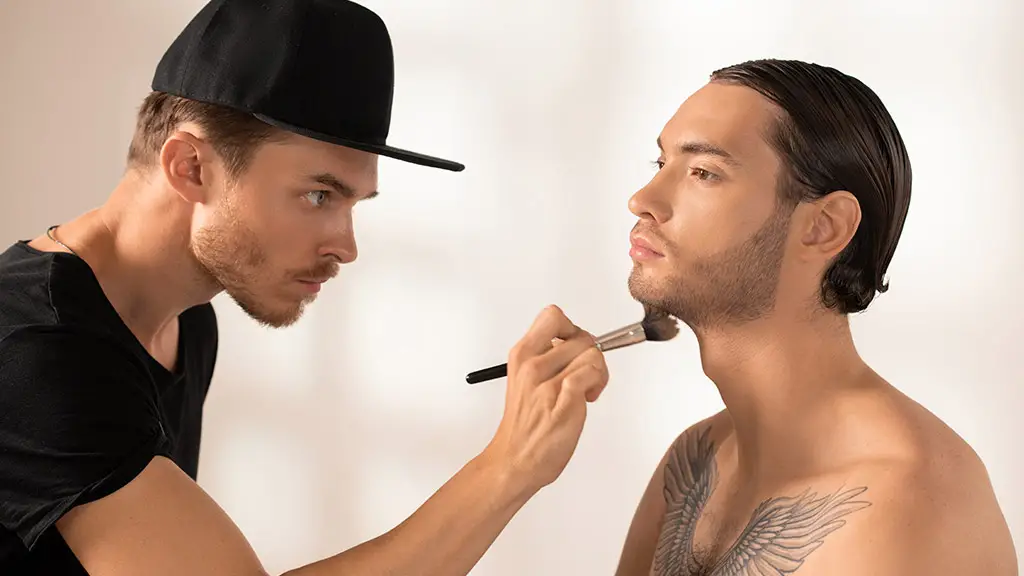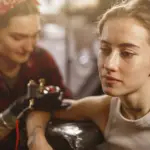So you’re an aspiring actor with tattoos, wondering if they might hinder your career aspirations? You’re not alone in your concerns. Many talented actors with body art have faced this question, and the good news is that, yes, you can still become a successful actor with tattoos!
While attitudes towards tattoos have become more relaxed in the entertainment industry, it’s essential to understand some limitations that could arise. For instance, specific roles may require you to conceal your tattoos, which could be time-consuming and sometimes costly.
However, acceptance and preference for tattoed actors have grown in recent years.
When deciding whether to pursue acting as a profession, evaluate your tattoo choices and consider how they might affect potential roles or assignments.
Remember that the right attitude, determination, and skill can win projects, with your tattoos serving as a unique element that sets you apart from other actors. Stay true to your craft and keep honing your skills to achieve success in the world of acting.
Actors with Tattoos
Regardless of the common belief, having tattoos as an actor is more common now than ever. With society embracing body art, you can confidently enter the acting industry even with your visible tattoos.
However, be prepared that some roles might require you to cover them up. In contrast, others might embrace your unique look, depending on the character’s traits and requirements.
Famous Actors with Tattoos
Your curiosity about actors who have tattoos might be piqued. Surprisingly, several renowned actors proudly own their tattoos and have paved the way for others to enter the industry with tattoos.
● Angelina Jolie: Angelina is known for her diverse roles, and her tattoos have not hindered her career. This renowned actor has several tattoos, including Latin phrases and coordinates of her children’s birthplaces.
● Johnny Depp: Another famous actor with tattoos is Johnny Depp. His tattoos reflect his life experiences and personal beliefs, and he continues to land prominent roles in Hollywood.
● Dwayne “The Rock” Johnson: Dwayne Johnson’s tattoo is an incredible tribute to his Samoan heritage, covering his upper arm and chest. Despite having this extensive tattoo, he continues to dominate on-screen in various roles.
These examples of actors with tattoos should inspire you to pursue your acting dreams. Remember, what truly matters is your talent, hard work, and passion for acting.
Tattoo Visibility and Roles
As an aspiring actor, you might wonder how visible tattoos affect your chances of landing certain roles. Let’s explore how the placement of your tattoos influences the roles you can get, focusing on visible tattoos on the face and neck.
Visible Tattoos on the Face and Neck
If you have tattoos in these areas, it could narrow down the roles available to you. However, talented actors with tattoos can and do find success in the industry, so don’t despair. Instead, consider the various factors at play.
For some productions, a visible tattoo may align perfectly with a character, enhancing their aesthetic and credibility. Other times, tattoos may not fit the vision, and wardrobe cannot easily cover them. In these cases, professionals may use makeup or digitally remove the tattoos in pre-production, but this might require additional time and resources.

● Period and historical pieces: When auditioning for roles set in a specific time period or boasting historical accuracy, body ink can present a challenge. Makeup techniques can obscure tattoos, but remember that the extra work might make casting directors opt for a more traditional choice.
● Corporate and professional roles: Tattoos, particularly on the face and neck, can be a barrier when auditioning for roles portraying corporate professionals, as public opinion still leans towards a more conservative appearance in these settings.
● Action and fantasy roles: On the other hand, tattoos can benefit characters in action-packed adventures or fantastical universes, where distinctive and unique appearances are often sought after.
Ultimately, the impact of your visible tattoos on your acting career depends on the types of roles you pursue and your ability to showcase your talent despite any aesthetic barriers.
Tattoo Cover-Up Techniques
As an actor with tattoos, you should cover them up for specific roles. Here are various techniques you can use to achieve a seamless cover-up.
Makeup and Clothing
Makeup can be your best friend when trying to hide tattoos. Invest in high-quality, waterproof, and highly-pigmented products like concealers, foundations, and setting powders. Apply them in layers until you achieve the desired coverage.
In addition to makeup, clothing can also help. Choose garments that strategically cover your tattoos, for example, long sleeves, turtlenecks, and high-waisted items. Make sure the clothes fit the character you’re portraying and adhere to the costume requirements.
Hair and Body Art
Hair can be an excellent way to cover tattoos, especially on the neck or behind the ears. Consult with the hairstylist on set to create a hairstyle that hides your tattoo while still fitting the character.
Lastly, consider using body art to your advantage. With the help of a skilled makeup artist, you can transform your existing tattoo into a temporary design that matches the character or scene. This technique works well for tattoos on exposed areas like your hands, where makeup might not suffice.
Casting and Auditioning
When it comes to landing acting roles, your tattoos may impact the casting and auditioning process. However, this largely depends on the specific project, character, and preferences of the casting directors involved.
Casting Directors and Tattoos
In general, casting directors are looking for actors who best fit the character they’re casting. If your tattoos align with the character’s appearance or enhance their personality, they can be an asset in the auditioning process.
But, if tattoos clash with the role, it may be a hurdle to overcome.
That being said, an increasing number of casting directors have become more open-minded about actors with tattoos, especially for contemporary projects. However, in certain cases, such as period dramas or roles requiring a specific appearance, tattoos may be a challenge. Preparing for these possibilities is essential for your acting career.
Communication with your agent is key, as they can help navigate potential issues with tattoos and find suitable roles for you.
Additionally, consider options like tattoo cover-up makeup or temporary modifications, so you can maintain flexibility during auditions.
Top Tips for Actors with Tattoos:
● Discuss your tattoos with your agent, ensuring they understand potential limitations and opportunities.

● Practice covering your tattoos with makeup or temporary modifications so you’re prepared for diverse roles.
● Research projects and casting calls that align with your appearance, increasing the chances of success in the audition process.
Considering a Tattoo as an Actor
As an actor, you may wonder how having a tattoo will impact your chances of landing roles. In the past, tattoos were often taboo in the acting world, but attitudes have shifted over time. Nowadays, many successful actors have tattoos, and some roles may even require them.
Before getting a tattoo, think about the types of roles you typically go for and where you’d like your career to head. While smaller, easily coverable tattoos are less likely to cause issues, larger or more visible ones might limit the roles you’re considered for.
However, makeup and special effects can often cover or alter tattoos if necessary.
When deciding on a tattoo, consider the following points:
● Size and location: Smaller, easily hidden tattoos are generally more acceptable and versatile in the acting world.
● Content: Avoid offensive or controversial tattoos, as they may reflect poorly on your professional image.
● Career goals: If you’re aiming for specific roles or genres, factor in how a tattoo might influence casting directors’ perceptions.
Ultimately, the decision to get a tattoo as an actor is yours to make. Assess your priorities and consider the possible consequences before committing to ink.
Conclusion
In conclusion, having tattoos should not hinder your pursuit of an acting career. As long as your tattoos can be covered or incorporated into a character, there are many opportunities available to you.
Keep in mind, however, that some roles may require adjustments, such as makeup or temporary cover-ups. To maintain versatility, consider consulting with industry experts when it comes to tattoo placements or design.
Ultimately, your talent, dedication, and passion for acting will be the determining factors for a successful career. Don’t let tattoos hold you back, and use them as a unique attribute that sets you apart from others in the industry.
Frequently Asked Questions
Q. Will having tattoos limit my acting opportunities?
Yes, having visible tattoos may limit some of your acting opportunities, as certain roles might require a tattoo-free appearance. However, with the growing acceptance of tattoos, many productions are becoming more flexible.
Q. Can I cover my tattoos with makeup?
Yes, you can use professional makeup to cover tattoos so they don’t interfere with a role. Many makeup artists specialize in tattoo coverage and can create a seamless result.
Q. Are tattoos allowed in theater and film?
Yes, tattoos are allowed in both theater and film; however, the acceptability varies based on the role and the production team’s preferences.
Q. How do I know if a casting call is open to actors with tattoos?
Usually, casting calls will mention any specific appearance requirements. If there is no mention of tattoos, you can safely assume that they are open to actors with tattoos.
Q. Does my tattoo color matter?
The color of your tattoo may be a factor for some roles, but in most cases, it won’t matter, especially if you’re able to cover it with makeup when necessary.








